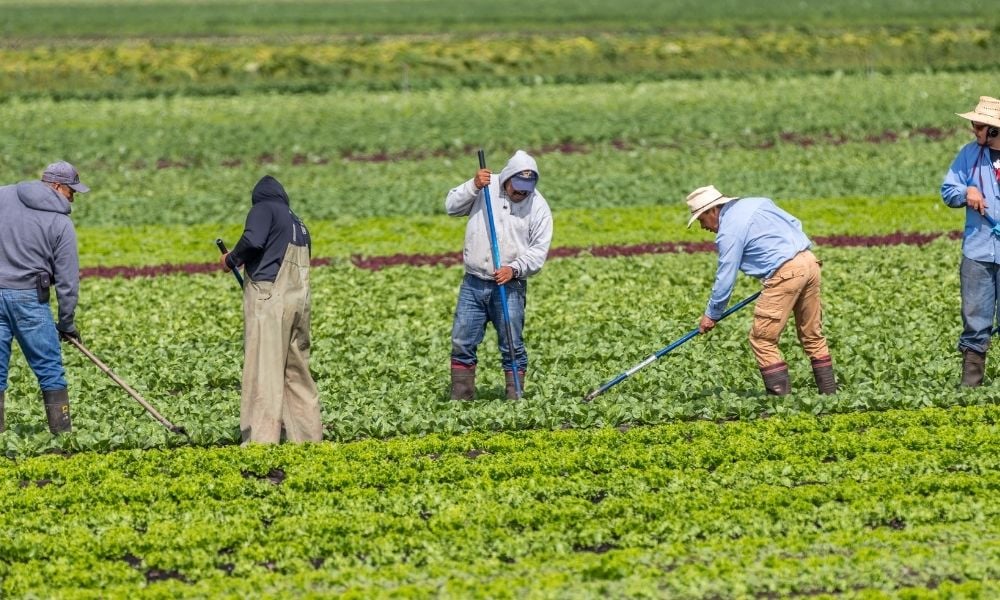Stakeholders demanded stronger requirements under the Temporary Foreign Worker Program

The minister of Employment, Workforce Development and Disability Inclusion has released a report on accommodations for temporary foreign agricultural workers, and promised to examine the availability of potable water and clean air, overcrowding, and the proximity of living quarters to hazardous material.
In the “What We Know Report,” Carla Qualtrough outlines feedback from stakeholder consultations on current employer-provided accommodations in the agriculture sector, which call for stronger requirements under the Temporary Foreign Worker (TFW) Program to ensure that temporary foreign agricultural workers have access to adequate and safe employer-provided housing.
While temporary foreign agricultural workers are entitled to the same workplace rights as Canadians under applicable laws, their temporary status can make them more susceptible to potential exploitation and abuse, Qualtrough said in a news release from Employment and Social Development Canada (ESDC).
The ESDC received feedback from a broad cross-section of stakeholders, including provincial territorial and municipal officials, migrant worker support organizations, employers, public health units, labour groups and unions, national housing experts, and foreign governments participating in the Primary Agriculture Stream.
Under the TFW Program, certain employers participating in the Primary Agriculture Stream are required to provide adequate accommodations to temporary foreign workers employed in Canada. This policy requirement is also mandated for employers of seasonal agricultural workers pursuant to the Immigration and Refugee Protection Regulations.
As part of their application to the Primary Agriculture Stream, employers are required to submit a housing inspection report indicating that an authorized inspector had inspected the accommodation arrangement for TFWs and found it compliant with the existing laws. Upon approval, they will be monitored by the federal government for up to six years after a temporary foreign worker commences work.
The report indicated that approximately 50,000-60,000 foreign agricultural workers traveled to Canada each year, which constitutes more than 60 per cent of all foreign workers entering Canada under the TFW Program.
Generally, the provinces and territories have exclusive authority over the development of accommodation-related regulations, such as housing standards. In some cases, the responsibility is designated to municipalities, which makes it challenging to ensure that employer-provided housing conditions for temporary foreign workers are consistent across the country, the news release stated.
While the majority of agricultural employers seriously regard the health and safety of their workers, the stakeholders’ feedback showed there remain challenges to be addressed within the Primary Agricultural Stream of the TFW Program, the report stated, and the federal government is now working to propose changes that would strengthen the requirements of the current TFW Program.
“The intent of proposed program changes will be to grant the Government of Canada the authority to require that employers provide consistent and explicit proof directly to the federal government that confirms compliance with provincial, territorial or municipal standards. This proof will be required as part of the employer’s application to the TFW Program, and employers will be expected to ensure that accommodations remain compliant throughout the season,” the report said.
As an initial step, Qualtrough had already directed the ESDC officials to lead the development of proposed changes to the current TFW Program that would focus on addressing the most important and non-negotiable health and safety concerns on temporary foreign worker accommodations. “Key areas of focus will include the availability of potable water and clean air, overcrowding, and the proximity of living quarters to hazardous material,” Qualtrough wrote in her message preceding the report.
The proposed changes are expected to be implemented in early 2022, Qualtrough said.










